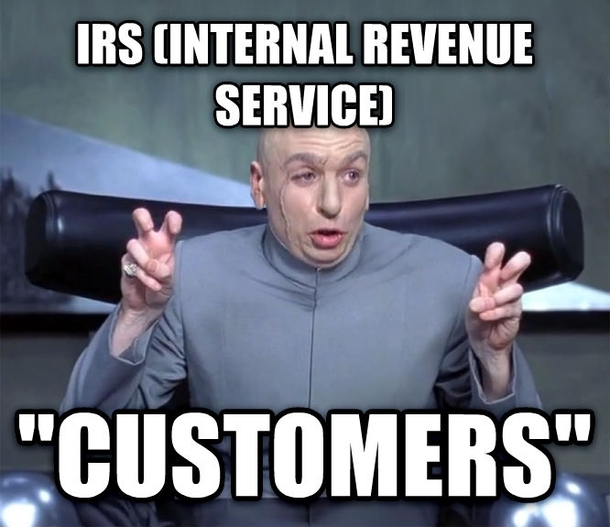
The IRS took to Twitter on August, 26, posting a video about recently mailed CP2000 notices, of special interest to crypto traders. The notice, which seeks to rectify discrepancies made by recipients in tax reporting, is another in a series of crypto-related letters recently sent by the agency. Though the promised guidelines for reporting still haven’t been delivered, crypto holders are nonetheless expected to magically know how to file. Some might even be surprised to learn that exchanges are sharing their financial info with the agency.
Also Read: India Facing ‘Unprecedented’ Economic Slowdown, Extraordinary Steps Urged
It’s Not an Audit, It Just Works Like One
The CP2000 notice is not strictly a crypto-related notice like notices 6173, 6174 or 6174-A, but because of the large role exchanges now play in cryptocurrency trading, and the information they release to the IRS, some taxpayers will have reported earnings that do not match the records of the exchanges they utilize. With previously promised guidelines still not issued, the likelihood of discrepancy is arguably large. These letters are not just friendly reminders, either, but come with real threats of severe punitive action. According to hrblock.com:
CP2000 notices aren’t audits, but they work the same. It’s important to fully respond by the IRS deadline.
 Many taxpayers can’t believe the CP2000 is not an audit, as it looks and tastes the same.
Many taxpayers can’t believe the CP2000 is not an audit, as it looks and tastes the same.
Many exchange users might be wondering how or from where the IRS got their tax info. It’s worth noting that U.S. law requires all broker and barter exchange services to report individually — via a 1099-B — for “each person” for whom they facilitated trading of “property or services.” What’s more, the CP2000 notices aren’t even created by humans. They’re computer generated, and according to H&R Block, “may not be right.” The tax assistance site goes on to detail: “You might not owe the full amount – or anything at all. In fact, many taxpayers who get a CP2000 notice don’t end up owing anything.”
Learn about the #IRS CP2000 notice and how to respond by watching this video tip: https://t.co/4xWNRLIndJ pic.twitter.com/LU8sWted4E
— IRS (@IRSnews) August 25, 2019
The IRS’ Sweet Youtube Vid
Posted to the @IRSnews Twitter account on Monday, the linked video features an agency spokesperson (with all the calm, measured contempt of a robot) assuring viewers that the letters are not audits, but that:
- They have 30 days to respond
- They can contest the proposed adjustment, but must respond either way
- If no solution can be agreed upon, the discrepancy can be contested in court
The spokesperson goes on to clarify that:
If we’re not able to accept your explanation … we’ll send you a CP3219A, which is a statutory notice of deficiency.
The CP3219A is basically an escalation of CP2000, which in order to be contested, obliges the recipient to file a petition with the U.S. Tax Court.
The Source of Confusion
Nobody knows exactly how, why, when, or where the IRS will choose to treat cryptocurrencies as securities, convertible virtual currencies, property, or otherwise, and in what combination. Technically, cryptos are “property” in the U.S., as per the last issued guidance in 2014, and taxes apply to property exchange. Some crypto tax accountants advise using like-kind reporting for this reason, to avoid unnecessary payments.
Tax experts have since confirmed that purchasing anything with crypto constitutes a taxable event, and the IRS seems to agree, judging by the new crypto-specific letters they’ve been issuing which state: “We have information that … you may not have met your U.S. tax filing and reporting requirements for transactions involving virtual currency.” This means that trading cryptos is a taxable event as well.
The IRS further requires third-party network and payment card transactions be reported via form 1099-K. Exchanges usually provide these forms to their high volume users to help them calculate capital gains, but which exchanges — outside of Coinbase — might also provide personal user information to the IRS, and how they do so, remains unclear.
Accountants Step Up
Helping confused people file crypto taxes is becoming big business. Especially since so few CPAs actually know how to do it. This is no surprise, as there is not a set procedure issued by the IRS in the first place. There are a few businesses and pioneering minds out there who are stepping up to the plate, however, in the midst of the unsettling ambiguity.
Enrolled Agent Clinton Donnelly of donnellytaxlaw.com recently shared his recommendation for filing safely, telling news.Bitcoin.com that “A great crypto tax return in the U.S. reports both the AML [Anti-Money Laundering] form and the crypto income.” The form being referred to here is 8300. Donnelly went on to clarify that if crypto traders have forgotten to file this form, they can follow a tax amnesty procedure to avoid $10,000+ fines. It’s important to remember, though, that while tax guidance can be a huge help, especially for big time traders, even the new experts don’t always agree. Once again, the non-existence of clear IRS guidance creates the trouble. In the case of new tax services, it has also created real market demand.
A Taxingly Tedious Situation
Ignoring the fact that taxation is a legalized form of stealing (legalized extortion), for those who still wish — for the preservation of their own safety and livelihood, or voluntarily — to comply, things are still not easy. With any number of forms being potentially required, AI databases examining exchange info against personal filings, and a complete lack of clear guidance from the agency demanding the money in the first place, the whole thing reads as darkly comical, bordering on the absurd.
Leave it to the IRS, the sentiment goes, to take a perfectly simple concept like P2P, permissionless exchange, and turn it into the head scratcher of a hot mess it is today, when viewed as a taxable event. It’s fairly certain a small child could devise a better plan, but then again, what would the IRS do without their jobs? There aren’t many openings in the private sector for someone to sit around all day threatening the more productive members of society.
What are your thoughts on the CP2000 notification? Let us know in the comments section below.
Disclaimer: Readers should do their own due diligence before taking any actions related to third party companies or any of their affiliates or services. Bitcoin.com is not responsible, directly or indirectly, for any damage or loss caused or alleged to be caused by or in connection with the use of or reliance on any third party content, goods or services mentioned in this article. Nothing in this article is to be construed as financial advice.
Images courtesy of Shutterstock, fair use.
Do you want to keep an eye on moving cryptocurrency prices? Visit our Bitcoin Markets tool to get real-time price updates, and head over to our Blockchain Explorer tool to view all previous BCH and BTC transactions.
The post appeared first on Bitcoin News









